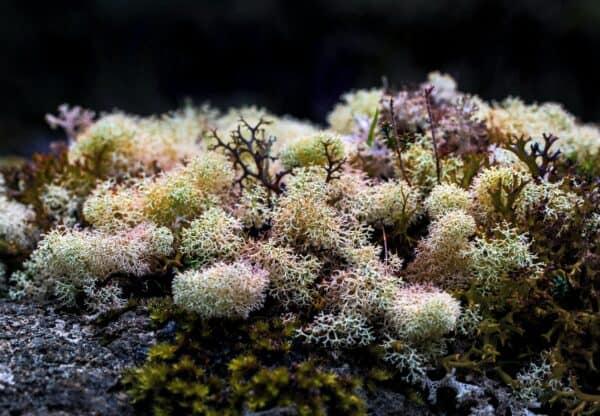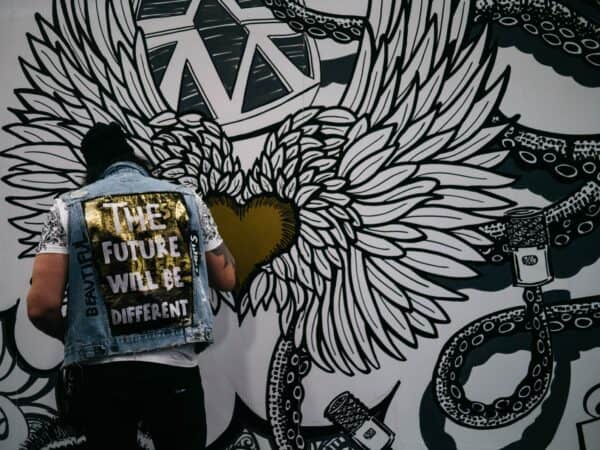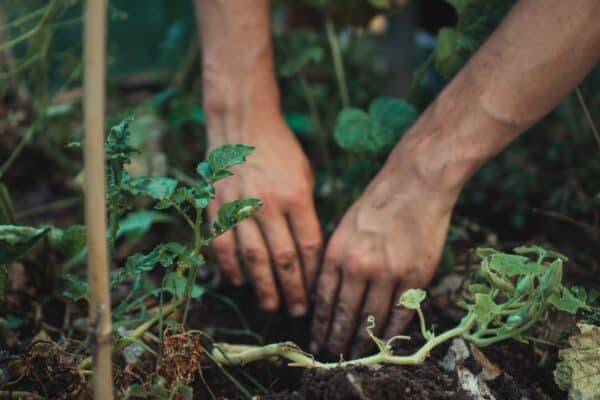Since we are all part of systems that are degenerative and co-dependent in nature, few of us actually know how to set healthy boundaries in all the different parts of our lives.
We may be great in some areas, but struggle in others.
For some reason, this seems to be one of the biggest hurdles for changemakers. Why? we may ponder.
The reason we become changemakers is that we care – care deeply about people and planet.
Sometimes that well of care inside us is there because caring about and for others has become part of our very identity, or who we have always been. And sometimes the reason for that is not always entirely healthy, even though on the surface, it can seem innocent and pure.
If we find that we are not consistently setting supportive boundaries, over-give even in small ways, feel overwhelmed frequently, overwork or keep moving from exhaustion to recovery, chances are that we are putting other people’s needs before our own, or are driven by a need to do good so that we can feel like we are enough in the world. All in the name of ‘caring for others’.
When we struggle to set healthy boundaries, we often have an underlying fear of rejection.
Our pattern is feeling a sense of relief or ease only when other people’s needs are met, expecting other people to change or trying to change other people. Eventually, this can lead us to feel depleted, exhausted, trapped, experience resentment and burn-out.
A lack of healthy boundaries is a symptom of co-dependency.
Co-dependency is when we are pre-occupied by the needs of others. If we grew up in family contexts where we weren’t fully seen by our caregivers, chances are that we learned to anticipate the needs of others in order to feel safe.
When love is conditional when we are small, we will make sure we do what we can to adapt, otherwise we will be rejected, neglected, abandoned, alone.
Prioritising other people’s needs can become a way for us to earn our right to be here: to be useful and enough.
This leads to over-giving. We give to get: get love, attention, approval.
When we give from a fear of rejection, we don’t know how to listen to our own needs. When we do feel them, we often think it is wrong of us to have them.
And when we bring this pattern into our work as changemakers, we tend to neglect our self-nourishment, have difficulties saying no and experience burn-out.
Healthy boundaries are a function of us knowing that we don’t need to earn our right to be here. We have nothing to prove and no-one to please.
Healthy boundaries enable us to live and work with integrity. Be part of life, as life. Without needing to fight to belong to it.
Self-nourishment is one of the four pillars of Wish Tree’s self-leadership model, and is neither about being so absorbed by ourselves that we live beyond our planetary means, nor don’t care about others.
It’s instead about understanding that when we don’t care for ourselves, we, in fact, don’t care for the whole.
When we give ourselves permission to start interrupting boundary-less patterns of relating to others and say yes to nourishing ourselves well, we not only say a loving yes to life, but we move from degenerative and co-dependent to interdependent and regenerative ways of operating in the world, and as such set ripples of wholeness in motion that interrupt the status quo.
If you recognise yourself in any of these behaviours, you may benefit from working with a qualified therapist that specialises in co-dependency. You may also want to check out Wish Tree’s wholeness immersion The Wounded Changemaker, and /or download the Wish Tree Summer Journal – filled with self-nourishment practises that strengthen your relationship with caring for your own wellbeing consistently.








